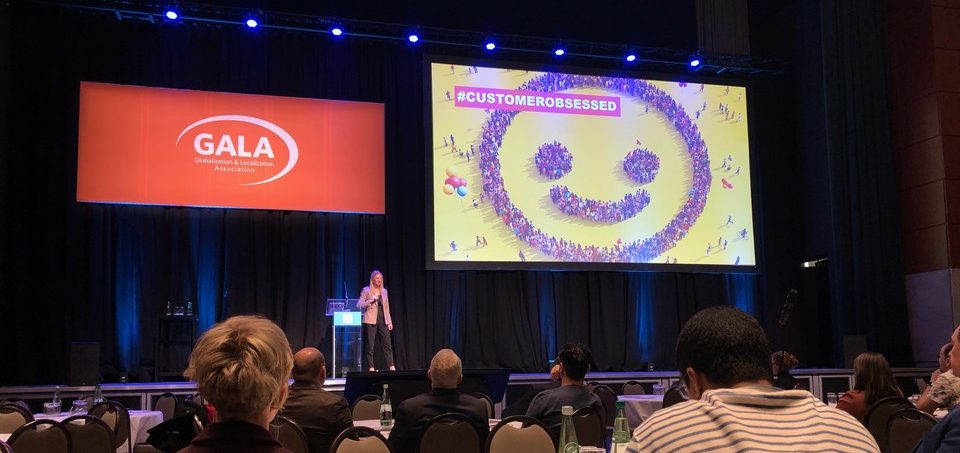By Marina Ilari |
The Globalization and Localization Association (GALA) conference of 2019 took place in Munich from March 24 to 27. I was particularly excited about this conference because it was my first time in Germany! Full disclosure: I do not speak any German. As a linguist, I was looking forward to learning some phrases in this foreign language (I might have failed at trying to pronounce most words, but after practicing insistently, I did end up learning how to properly say “Neuschwanstein,” the name of the castle we visited during the GALA pre-conference tour).
This year, the conference focused on artificial intelligence, specifically the latest innovations which have evolved to meet the rapidly growing demand for services in the global translation and localization industry. I was expecting to hear a lot about machine translation and how it’s changed the way that we work, a topic that held little promise of novelty for me despite its importance. I was pleasantly surprised, however, that most of the sessions touched on the importance of the human factor in translation, and how it will continue to be an essential part of the industry.
Below I would like to share three main takeaways from the conference and the sessions I attended.
We’ll always need translators
Human translators will always be necessary in our industry. The expertise of human beings—whether it pertains to cultural awareness or to niche expertise in key verticals— will only become more important as new technology develops and the organization and flow of business become increasingly complex and accelerated.
Henry Dotterer, the founder and president of ProZ, predicts that there will be “no more anonymous translators,” and that individual translators will have a more prominent presence in the translation work of the future.
Zack Kass, from Lilt, expressed during his presentation that “We’ll always need translators who are domain experts.” Translators working in a specific niche, experts in a domain, will continue to be essential, as there are even higher expectations for the translated content than there are for the original content being produced by companies worldwide.
Our industry is evolving

The translation industry is going through major technological changes impacting the way we do business. Technological innovations run the gamut from the incorporation of rule-based systems, the use of expert systems, machine learning, artificial intelligence, and deep learning. This technology is here to stay, and learning to adopt it will become more and more important if companies wish to sustain growth over the next century. According to a study by Common Sense Advisory, companies that aggressively embrace technology, such as the use of MT, have shown greater growth (companies not embracing technology grew 2.3% whereas those embracing technology grew 7.9% from 2013-2016).
Today we translate less than 3% of the content available in less than 10 languages. As the future of global brands depends on localizing and globalizing their business, the volume of this content will, inevitably, go up. We can expect an overall increase in language services, and translation companies need to be prepared for this by utilizing a more proactive —instead of reactive— approach.
Talent, not technology, is the key to success in the digital future

During one of the presentations someone shared a quote by Scott Snyder: “The digital future is a moving target… Start by having the right people with the right skills in the right roles… this will far outweigh picking the right technology algorithm… Make sure you get the human part right.” I couldn’t agree with this more. Our human talent is essential to the success of our company. As the industry continues to evolve and as we continue to implement technologies that help us automate processes, the expertise of our team members (project managers, account managers, vendor managers, etc.) is the added value we can provide to our clients. The evolution of the industry dictates, however, that the technical knowledge of all stakeholders will need to be advanced. Easy and repetitive tasks will continue to be more and more automated and machine-centric. The expertise of our team members will come into play in projects that are more complex. Investing in the professional development of your company’s team, including comprehensive training in cutting-edge technology, is fundamental to the growth and success of a company.
As Andrew Hickson said during his presentation in Munich, “But what if we train our employees and they leave? Well, what if we don’t and they stay?”. Indeed, employees are our greatest asset. Training them is the bridge to help our company adapt to change and grow, and ultimately, to add value to our clients.









